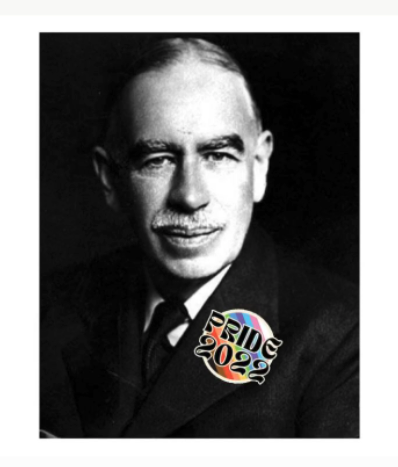It's Pride Month! Let's talk about queering housing economics
Posted on 05-06-2022
It’s pride month and we queers get to celebrate our identity. That is, unless we are in one of the 71 countries that still criminalise homosexuality. In fact, in 11 of them not being straight can get you executed. But hey, you don’t need to go to Uganda to get killed for being gay, just going out with your friends can end up with you getting beaten to death as it happened to a 23-year-old last year in my home region. [1]
At least our cheesy teenager romcoms are better, just like Hearstopper on Netflix has proven to the whole world once again. That being said, I’m not here to (just) shame all the straight readers and celebrate queer culture alone. I have something to say about housing economics. Because economics is queer. This is not only because Keynes, the father of macroeconomics whose birthday is today, was a queer himself (and a Gemini) but because economic inequalities affect sexual minorities harder. But enough about Keynes's hook-up list which proves that gay sex was already ubiquitous even before Grindr. [2]
I want to draw your attention to some facts. The charity AKT reports that as many as 24% of young (aged 16 to 25) homeless people in the UK are LGBT+. This is a more than worrisome figure given queers are less than 10% of the population. Abuse, poverty and exclusion are still the daily realities of many a queer youth. Please have a look at their latest report here. [3] [4] [5]
However, the discrimination of queer people is not only tangible in homelessness but permeates housing provision tout court. According to research by Freddie Mac, the government agency tasked with expanding the secondary market for mortgages in the US, LGBT ownership lags behind the general population. 49% of LGBT community members are likely to own a home, considerably lower than the current national rate (64.3). Gays and lesbians are the most likely to own (52%) “while LGBT African-Americans (30 per cent) and LGBT Millennials (23 per cent) were the least likely to be homeowners.” [6]
Homeownership has come to occupy a central role in wealth building and welfare provision, particularly for the middle classes and those well-off. This is a direct result of a set of housing policies, including mortgage interest deduction and lack of capital gain tax, often enacted by governments across the political spectrum. Problematising the distributional impact of these policies on queer households is paramount to the reformulation of housing provision.
You can now go click on Keyne’s hook-up list, which together with his latest biography by Zachary D. Carter is not to be missed.
[2]https://www.theatlantic.com/daily-dish/archive/2008/01/keyness-jew-boy-quickie/220620/
[3]https://www.akt.org.uk/report
[6]https://www.freddiemac.com/research/consumer-research/20181001-lgbt-homeownership
[7]https://www.penguinrandomhouse.com/books/563378/the-price-of-peace-by-zachary-d-carter/


